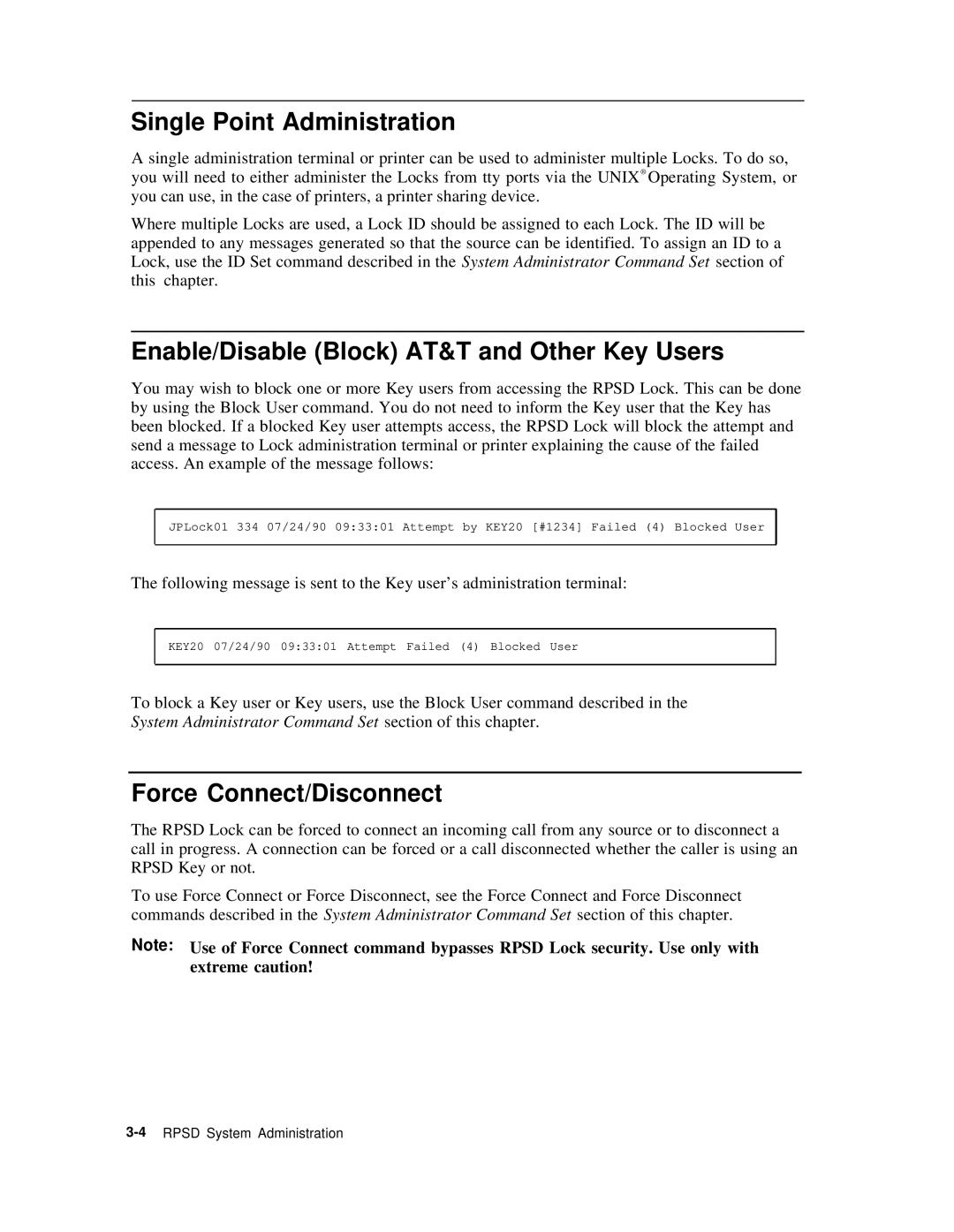
Single Point Administration
A single administration terminal or printer can be used to administer multiple Locks. To do so, you will need to either administer the Locks from tty ports via the UNIX® Operating System, or you can use, in the case of printers, a printer sharing device.
Where multiple Locks are used, a Lock ID should be assigned to each Lock. The ID will be appended to any messages generated so that the source can be identified. To assign an ID to a Lock, use the ID Set command described in the System Administrator Command Set section of this chapter.
Enable/Disable (Block) AT&T and Other Key Users
You may wish to block one or more Key users from accessing the RPSD Lock. This can be done by using the Block User command. You do not need to inform the Key user that the Key has been blocked. If a blocked Key user attempts access, the RPSD Lock will block the attempt and send a message to Lock administration terminal or printer explaining the cause of the failed access. An example of the message follows:
JPLock01 334 07/24/90 09:33:01 Attempt by KEY20 [#1234] Failed (4) Blocked User
The following message is sent to the Key user’s administration terminal:
KEY20 07/24/90 09:33:01 Attempt Failed (4) Blocked User
To block a Key user or Key users, use the Block User command described in the System Administrator Command Set section of this chapter.
Force Connect/Disconnect
The RPSD Lock can be forced to connect an incoming call from any source or to disconnect a call in progress. A connection can be forced or a call disconnected whether the caller is using an RPSD Key or not.
To use Force Connect or Force Disconnect, see the Force Connect and Force Disconnect commands described in the System Administrator Command Set section of this chapter.
Note: Use of Force Connect command bypasses RPSD Lock security. Use only with extreme caution!
